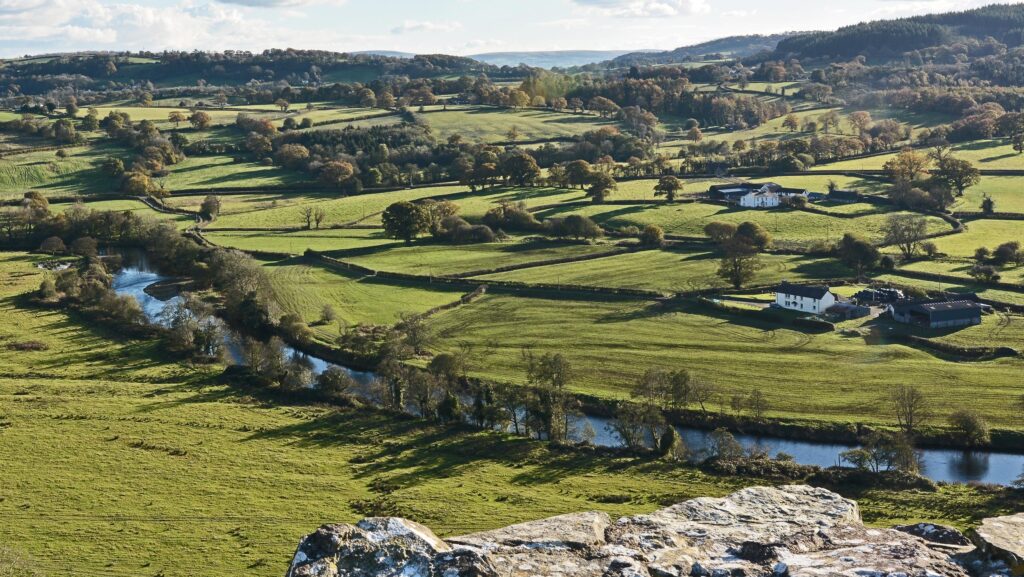Wales Environment Bill gets frosty reception
 © Adobe Stock
© Adobe Stock Farmers in Wales have expressed their fears that a new environment bill recently laid in the Senedd will lead to extra regulation and place unrealistic burdens on their businesses.
The Environment (Principles, Governance and Biodiversity Targets) (Wales) Bill in Wales was introduced to the Senedd on Monday 2 June, seeking to establish a framework for environmental governance in Wales, embedding environmental protection across all areas of policymaking.
It also aims to address the decline of biodiversity through an amendment to the Environment (Wales) Act 2016, establishing biodiversity targets.
See also: New Welsh government scheme funds nature-friendly farming
Environmental principles, such as prevention, precaution, rectification at source, and the polluter pays principle, are included.
In addition, the Bill proposes the establishment of an Office of Environmental Governance Wales (OEGW), tasked with providing strategic oversight of environmental law.
Responding to concerns about the creation of another public body, the Welsh government said that fundamental change to environmental governance was needed following the UK’s departure from the EU.
“There is no existing body in Wales suitable to, or capable of, fulfilling the role previously held by the EU Commission in respect of EU environmental law, whether directly applicable or implemented into domestic law,” the Welsh government said.
The OEGW, it added, will have a more encompassing and responsive oversight of environmental law in Wales, reflecting Wales’s “unique legislative landscape”.
Concerns
However, the Farmers’ Union of Wales (FUW) said that, while the bill could oblige the Welsh government to further support and fairly fund farmers for land and habitat management, it mustn’t increase the burden.
“As we have seen with the agricultural pollution regulations, we must ensure these targets are not expected to be met via an increased regulatory burden for farmers, particularly in light of imported food produced to far lower environmental standards,” said FUW policy officer Teleri Fielden.
As the bill progresses through the Senedd’s stages of scrutiny, the FUW will seek clarity on how these principles will align with, or undermine, the national goals set out in the Agriculture (Wales) Act and the Well-being of Future Generations (Wales) Act.
Welsh farm lobby group Digon yw Digon warned that, without major amendments and proper checks and balances, it could have severe consequences.
A spokesperson told Farmers Weekly: “This will be a framework that makes Welsh people poorer, diverts money away from public services, places massive obstacles in the way of economic development, and further threatens farmers and our food supplies.”
‘Through the back door’
Questioning how the bill would affect farmers who are not planning to participate in the Sustainable Farming Scheme (SFS), Welsh Conservative shadow rural affairs secretary, Samuel Kurtz, said he was concerned it would “introduce minimum standards through the back door”.
Mr Kurtz further raised concerns about bill being introduced as a “framework bill”.
“It gives quite unbridled powers to government ministers and leaves me quite anxious as to the future trajectory of government support for agriculture in Wales,” he said.
Biodiversity targets
Biodiversity targets, which form part of the bill and set recommendations on how to address a decline, have been informed by previous works, such as the Biodiversity Deep Dive published by the Welsh government in 2022.
However, the exclusion of the farming sector has sparked further criticism from the FUW.
“The lack of consultation the union experienced during the Welsh government’s previous Biodiversity Deep Dive and their current Biodiversity Targets formation does create cause for concern,” said Mrs Fielden.
Digon yw Digon added: “It is totally unacceptable that Welsh government has allowed the development of the Deep Dive advisory group to be totally one-sided, with only environmental lobbyists who are often funded to some extent by Welsh government and has no agricultural representation.”
